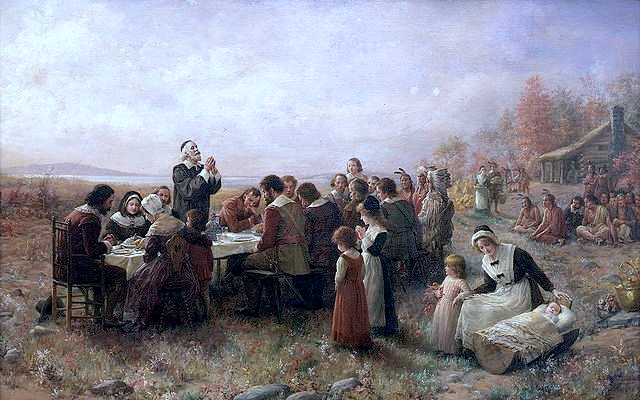Anyone who is somewhat familiar with Jesus’ teachings knows that He told us not to judge. But the differences of opinion over what He meant by this, as well as the actions of many Christians, reveal that a lot of people are apparently confused about this subject. Did Jesus intend that we never judge anyone on any matter? Was His aim that we not judge our brethren but that we have an obligation to show the world its sins? Did He mean that we should judge moral infractions but not be critical about doctrine? Or did He want us to be discerning over doctrine but soft on morality? In this article, I intend to show from the Bible when/what/who we are to judge and when/what/who we are not to judge. Also, I’ll point out the harm of judging when we are not supposed to.
Category Archives: Articles
Q. In Revelation, Jesus speaks of those who overcome. What must I do to overcome?
A. The Scriptures you are asking about are Revelation 2:7, 11, 17, 26; 3:5, 12, 21; and 21:7. Many preachers, radio and television evangelists, and Christian writers utterly misunderstand and misapply these verses to support a false doctrine of works salvation or at least lessen the full scope of Christ’s atonement. Certainly, these verses speak of overcoming. But do they mean that we are to work at overcoming?
In Everything Give Thanks

On the fourth Thursday of November, the people of the United States celebrate Thanksgiving Day. Canadians observe a similar day on the second Monday of October. Several other places around the world also celebrate thanksgiving days, and many countries and regions hold harvest festivals, such as Germany’s Oktoberfest.
All of these celebrations give thanks for the harvest, the abundance, the blessings, the good things we enjoy. Certainly, that’s right and good. But the Bible tells us to give thanks for more: “In everything give thanks, for this is the will of God in Christ Jesus towards you” (1 Thessalonians 5:18).
Q. In your article, "Why the Suffering?", you say that the root cause of human suffering is sin. Okay. But, if God has forgiven our sins, why do Christians continue to suffer?
A. It is true that the root cause of human suffering is sin–our own sins and the sins of others (see “Why the Suffering?“). We live in a fallen world. It is also true that God has forgiven the sins of those who trust in His Son, Jesus Christ, as their Savior. God is certainly not punishing the sins of those who trust in His Son because Jesus bore all of the punishment in our stead. But, even though we believers are not of this world, we still live in this fallen world and suffer the effects of it: disease, crime, wars, natural disasters, dishonesty, and so forth, and, finally, physical death.
The Cure for Discouragement
We’ve probably all experienced the discouragement that comes with self-recrimination. We do something wrong and then stew in feelings of guilt. “I’m so nasty,” “I’m always doing the wrong thing,” “How can God love me?” We respond by either thinking we’re a hopeless cause or by setting our will to do better next time. Either way, the entire scenario is carnal rather than spiritual, but it’s understandable.
Bread and Circuses

Sometime around A.D. 100, a Roman satirical poet known as Juvenal wrote, “the People…anxiously hopes for just two things: bread and circuses [Latin–panem et circenses].” His point was that the government was pacifying the Roman populace and distracting them from important issues by giving them free or cheap food and entertaining them with spectacles. It seems to be basic to human nature that if our bellies are full and we have entertainment put before our eyes, we will become distracted from anything important and fall into a stupor of apathy.
Don’t Be Afraid
23 June 2013: The news on any random day is enough to raise hair on a lizard: a war in the Ukraine, the threat of yet another war in the Middle East, disease outbreaks that might mushroom into pandemics, what seems to be a new shooting rampage every week, possible weather chaos from climate change, the epidemics of diabetes and dementia, and the list goes on. And then there is the personal news we might be confronted with at any time, such as a friend being diagnosed with cancer, someone’s husband killed in a car accident, and a child dying of a congenital heart defect. Faced with such reports, we can find ourselves becoming anxious, fearful for the world, fearful for our friends, alarmed that one or more of these terrors may come upon us personally.
Q. What determines whether someone is elect or reprobate?
A. Many good, Bible-believing Christians would answer this question with one word: “Nothing.” Their reasoning would be that, because election is unconditional, then nothing determines whether someone is elect or reprobate. But the answer is not so simple. What determines whether an animal is a squirrel or a turtle? Certainly, no choice the animal made determines its species, and no works the animals does makes it either a squirrel or a turtle. So, being a squirrel or a turtle is unconditional as far as the animal is concerned. Yet, we would have to agree that something determines whether it is a squirrel or a turtle, something that is outside of the control of the animal. So, can election be both unconditional and determined by something?
A Bible Study About Pride
All human beings naturally have pride. Both adults and children have pride. But you might be surprised to know that in all 49 places in the King James Version of the Bible, pride is never mentioned as being a good thing. The Bible always treats pride as being bad. Throughout the Old and New Testaments, there are several words that are translated as “pride,” but, whichever word it is translated from, pride is always considered a bad thing.

